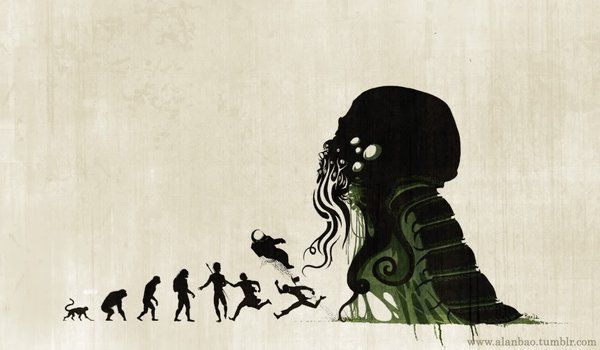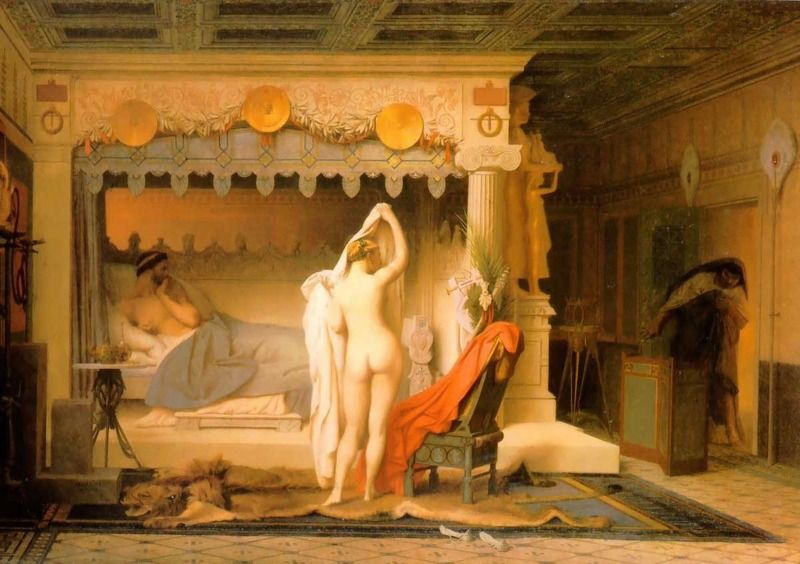SENSOR SWEEP: Prescriptive Judgements, Prehistoric Ignorance, Cultural Pressures, and Final Apocalypse
Wednesday , 30, March 2016 Sensor Sweep Leave a comment Games (Grant Dalgliesh) The Original Star Wars — “In 1977, Columbia Games, then known as Gamma Two Games, published a strategy game called ‘Starwars’. This game had no connection to the movie Starwars, but was a simple space strategy game for 2-4 players that involved exploration and conquest of six star systems. The game was published in Canada before the movie was released in Canada.”
Games (Grant Dalgliesh) The Original Star Wars — “In 1977, Columbia Games, then known as Gamma Two Games, published a strategy game called ‘Starwars’. This game had no connection to the movie Starwars, but was a simple space strategy game for 2-4 players that involved exploration and conquest of six star systems. The game was published in Canada before the movie was released in Canada.”
From the Comments (Black Gate) The Problem With Marion Zimmer Bradley: Rich Horton on Falcons of Narabedla/The Dark Intruder — “But I don’t understand why SF&F people seemingly inclined to make prescriptive judgments about whether an author should be read or not when the examination of such an author’s life doesn’t hold up to scrutiny (even if justified)? If we did that to every writer in my field of philosophy, we wouldn’t ever be able to study the books of anybody! Such posts, in my opinion, seem to only contribute, or at least suggest a sort of mood or atmosphere of McCarthyism or witch-hunting within the SF&F community. For that seems to be what results once we find out certain details that are not popular. Hopefully there’s no award with Bradley’s face on it or her name attached to it. The SF&F community would probably be spurred on to have it removed. Come to think of it, has anyone looked into the details of the lives of Campell, PKD, or Tiptree? Surely something scandalous can be found in those editors/authors’ lives that would morally obligate their work to be justifiably judged and ignored.”
Comics (Doctor Xaos Comics Madness) Jet and silver — “The whole title has a problem with establishing and maintaining villainy, repeatedly giving someone lots of buildup (Bushman, Black Spectre) only for Moon Knight to take him down and for it to be over when in terms of story potential, it had barely begun. There’s one exception, is there ever – possibly the finest straight-up sympathetic vigilante bad-guy-killer around, plus the oddest most unmarketable name ever, speaking here of course of the inimitable Stained Glass Scarlet. She’s a case study of how much awesome there’d be in simply throwing the knightly virtue of the O’Neil template aside and embracing both its sentimentality and its force: the righteous justification of rage, the sadness and complete awareness of her own loss of humanity, the perfect targeting of those responsible, without a smidgeon of ‘oh no collateral damage what have I done,’ the cool dismissal of Moon Knight’s ‘I understand but what about right and wrong’ appeal to her, and the fine, fine absurdity of just punching crossbow bolt after crossbow bolt through people while wearing some kind of overpoweringly red evening gown.”
 Conventions (USA Today) SXSW sets online summit apart from main fest, sending wrong message — “I couldn’t quite put my finger on it until I opened a door with a sign that informed me that if I left to stand outside in the sun, the door would lock and I’d have to go through the full security rigamarole again. The message the festival sent — not the panelists or the fascinating discussion around a critical issue in both online and real-world culture — was ‘You are the problem’ not ‘We are trying to keep you safe.'”
Conventions (USA Today) SXSW sets online summit apart from main fest, sending wrong message — “I couldn’t quite put my finger on it until I opened a door with a sign that informed me that if I left to stand outside in the sun, the door would lock and I’d have to go through the full security rigamarole again. The message the festival sent — not the panelists or the fascinating discussion around a critical issue in both online and real-world culture — was ‘You are the problem’ not ‘We are trying to keep you safe.'”
Gaming Life (Board Game Geek) Why buy them? — “This site is an altar to consumerism. People paying big money to have bits of cardboard and plastic shipped overseas so they can collect dust on their shelves. And yet this never satisfies them: as soon as one is bought, they start shopping for another game. It’s a good place to spend time to research your next purchase but you have to ignore all the cult of the new stuff. Considering the impact we now know we have on this planet, it’s important to practice harm reduction and only buy things when they will actually be used. Unfortunately, people have a feeling that ‘they can do what they want with their money!’ (or more likely their credit). So let’s just hope that governments start eventually taxing goods according to how damaging they are for the planet. That should help with the rampant consumerism.”
Appendix N (The Guardian) Lost HP Lovecraft work commissioned by Houdini escapes shackles of history — “While Lovecraft entertained readers with weird and horrific science fiction and Houdini amazed audiences with displays of superhuman escapes, both are to be found here in what they call a ‘campaign’ against superstition. They argue that all superstitious beliefs are relics of a common ‘prehistoric ignorance’ in humans.”
Wargames (Black Gate) Beat the British and Save New France: Empires in America 2nd Edition — “The second edition of a solitaire board game about the French and Indian War sits only a few feet away from me, and it’s all I can do to keep writing this review. I’d much rather be finishing the game, the seventh I’ve played this week since I received it Monday. You see, Wolfe is marching on Ticonderoga and Monro is heading for a fort I built in the Green Mountains. I’ve whittled both of their armies down, though, so the biggest threat is General Anherst, aided by the Royal Navy as he advances along the St. Lawrence Seaway.”
Cirsova (Wasteland and Sky) Going Old School — “Heroic stories are not in vogue, and magazines which deal in them are even rarer still even though they are the stories which most enjoy partaking in whether on TV or in film. But this is still a neat little treasure that inspires me to know that stuff like this still gets written even amongst all the nihilism and message fiction that floats around in the mainstream. I’m glad I was able to be a part in helping to at least fund it, since I doubt another magazine like this will come around any time soon.”
RPGs (Gaming Ballistic) Heretical Playtest – First Contact — “Tactics were huge. When it only took a few blows – or even one – to injure or kill, how you faced the bad guys really mattered. Flanking was huge, and funneling the foes down into a narrow doorway (stupid kobolds! no biscuit!) turned it into a meat-grinder for the NPCs.”
 RPGs (Gaming Ballistic) Heretical Playtest – Second Session — “The fight went decidedly against the players, with the two greatsword attacks by the captains too-frequently being paired with critical hits (at least twice). With the rules changes in place, this proved fatal to one fighter, and at least incapacitating, if not fatal, to the other. The monk grappled one of the two into the Restrained condition, which allowed a bit of constructive dogpiling and a good sneak attack or two by the rogue.”
RPGs (Gaming Ballistic) Heretical Playtest – Second Session — “The fight went decidedly against the players, with the two greatsword attacks by the captains too-frequently being paired with critical hits (at least twice). With the rules changes in place, this proved fatal to one fighter, and at least incapacitating, if not fatal, to the other. The monk grappled one of the two into the Restrained condition, which allowed a bit of constructive dogpiling and a good sneak attack or two by the rogue.”
RPGs (Google+) Ron Edwards — “What seems to keep happening is ‘anyone can sell here! oh wait not you.’ Thus we get ‘pulled’ titles, meaning in and then out, and thus here in the social space we get all manner of f***ing principled debate about morals and ethics and SFW and freedom and whatnot. Such a debate would be fine regarding option 1 vs. option 2, if someone were conflicted about which to do, before starting the service. But since the situation is indisputably toxic and unsolvable because someone is trying to do both at once, then all such talk is moot. It is stupid and dishonest, bordering on vicious, for someone offering such an outlet not to say what his or her policy about this is, exactly, and up-front. It is doubly stupid, in doing so, also to permit automatic submission and inclusion.”
RPGs (Google+) James Spahn — “I announce today that I have ended my exclusivity with OneBookShelf and its affiliates. Because of the requirements of this termination of exclusivity, I will be joining Tabletop Library, where the Barrel Rider Games library of products will be available starting in August. It saddens me to see OneBookShelf take this course of action, as I have always had a positive relationship with them and both OBS and Barrel Rider Games have been able to act in a manner that was mutually respectful. But if this is how they treat a single publisher who has already followed all their policies and requirements, I fear it is only a matter of time before they turn their attention to any whose work is even remotely deemed potentially offensive.”
Art (Independent) Modern art was CIA ‘weapon’ — “The connection is not quite as odd as it might appear. At this time the new agency, staffed mainly by Yale and Harvard graduates, many of whom collected art and wrote novels in their spare time, was a haven of liberalism when compared with a political world dominated by McCarthy or with J Edgar Hoover’s FBI. If any official institution was in a position to celebrate the collection of Leninists, Trotskyites and heavy drinkers that made up the New York School, it was the CIA.”
 History (Tor.com) Writing Women Characters Into Epic Fantasy Without Quotas — “All too often the sole determiner of whether women ‘belong’ in epic fantasy is whether they took up arms, despite the presence of many menfolk who aren’t warriors or soldiers in historical epics. Kameron Hurley’s essay ‘We Have Always Fought’ comprehensively explodes the idea of women as universal non-combatants. My spouse, an archaeologist with a specialty in militarism and empire, often points out that on frontiers and in revolutions where every body is necessary to success, women step up in diverse ways because that’s what is needed. If women can take on traditionally ‘male’ roles in times of duress then they are, in fact, capable of doing those things at any time. It is cultural pressures that restrict them.”
History (Tor.com) Writing Women Characters Into Epic Fantasy Without Quotas — “All too often the sole determiner of whether women ‘belong’ in epic fantasy is whether they took up arms, despite the presence of many menfolk who aren’t warriors or soldiers in historical epics. Kameron Hurley’s essay ‘We Have Always Fought’ comprehensively explodes the idea of women as universal non-combatants. My spouse, an archaeologist with a specialty in militarism and empire, often points out that on frontiers and in revolutions where every body is necessary to success, women step up in diverse ways because that’s what is needed. If women can take on traditionally ‘male’ roles in times of duress then they are, in fact, capable of doing those things at any time. It is cultural pressures that restrict them.”
Appendix N (My Weird Life) The Dying Earth/The Eyes of the Overlord by Jack Vance — “Cugel himself is a classic Vancian anti-hero. He is a liar, a cheat, a rapist, a killer, a coward, and a thief, yet considers himself superior to everyone around him. He is a wholly unlikeable character, and yet by the end of the story Vance has managed to evoke a surprising amount of sympathy for him, which he accomplishes by fashioning most of the other characters to be even less likable than Cugel is. For every con Cugel successfully pulls off, he is conned himself twice over. In many ways, ‘the Clever’ is an ironic title, and this contradiction is a source of much of the novel’s humor. Cugel’s final blunder at the end of the book is the ultimate expression of his incompetence.”
Board Games (Quartz) Russia banned a Polish board game that simulates Communist-era shopping — “‘Queue’ was released in Poland in 2011, with translations into five languages. It aims to show a younger generation of Poles the exasperation of everyday life in communist-era Poland. Players have to buy all the products on their shopping lists in the five stores in the neighborhood–or on the black market. They have to wait for the products to be re-stocked, and in order to advance in the line, they can use cards such as ‘mother with child.’ The game quickly became a hit, drawing long lines to get one, ironically.”
Books (Kirkus) The Innovative Jim Baen — “In his book, The Dreams Our Stuff Is Made Of: How Science Fiction Conquered The World, Thomas Disch noted that the Baen/Pournelle style of fiction that catered more towards conservative fans with a heavy focus on military science fiction and alternate history, exemplified by the publication of authors such as the Speaker of the House Newt Gingrich in 1995. The publisher effectively tapped into the longer strains of science fiction promoted by authors such as Robert Heinlein and John W. Campbell Jr, and demonstrated that the popularity of these stories had not gone away with science fiction’s more liberal ‘New Wave’ movement.”
 Game Design (Geek & Sundry) Bringing Lovecraft to Pathfinder: Game Design with Sandy Peterson — “There is more to these beings than simply gross monsters – they are not created by a whim. No indeed, the Outer Gods spawn them for a purpose – to open the magical gateways that can bring them to the world, where they can rule again. These entities are always acting and plotting and working to bring about this final apocalypse, which means of course they make terrific opponents for a great horror-based campaign, in which the heroes must stop them to prevent the final catastrophe. Thus I believe we have combined horror and heroic fantasy in this way.”
Game Design (Geek & Sundry) Bringing Lovecraft to Pathfinder: Game Design with Sandy Peterson — “There is more to these beings than simply gross monsters – they are not created by a whim. No indeed, the Outer Gods spawn them for a purpose – to open the magical gateways that can bring them to the world, where they can rule again. These entities are always acting and plotting and working to bring about this final apocalypse, which means of course they make terrific opponents for a great horror-based campaign, in which the heroes must stop them to prevent the final catastrophe. Thus I believe we have combined horror and heroic fantasy in this way.”
Appendix N (Mockman.com) The Trail of Dreams: Lord Dunsany — “Without Dunsany’s work — his flair for language, his love of the exotic, his invented Gods, his obsession with time and the transience of humanity — HP Lovecraft’s fiction might have turned out very differently. He enriched the fantasy world with his stories of Bethmoora and Gnoles and Gibbelins, and at his best, his writing shines in a way Lovecraft’s never did.”
Appendix N (R. Alain Everts) Lovecraft and Lord Dunsany — “As I remember him he was tall and large-boned—with a long jaw—or perhaps I should say chin—from the lower lip downward. He was rather dark complexioned and was extremely pale. Evidently he was not in very good health. He had severe headaches and never was known to go far from his home—except to hear Lord Dunsany at my invitation. Mr. Lovecraft’s style of writing was highly imaginative as was Dunsany’s and I thought Mr. Lovecraft would greatly enjoy hearing the Irish poet.”
Appendix N (Yog-Sothoth) Lord Dunsany Discovers Lovecraft — “I have been told of an article which I never saw in print, written about my work by the late H. P. Lovecraft, in a book published by you called Marginalia. It would be very kind of you if you would give me a copy of this book because I cannot get one here, & have an odd interest in Lovecraft’s work because in the few tales of his I have read I found that he was writing in my style, entirely originally & without in any way borrowing from me, & yet with my style & largely my material. It would much interest me to see the book if you would be so kind as to send me a copy.”
Please give us your valuable comment